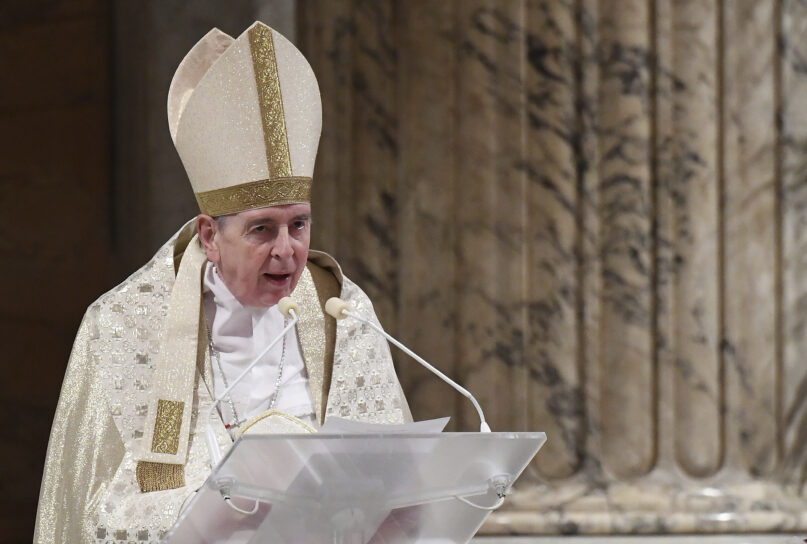ROME (AP) — Germany’s Catholic Church reform process is under fire again from the Holy See, with a Vatican cardinal apparently comparing its proposals for theological development to the thinking that underpinned Nazi-era Germany.
The fury launched by Swiss Cardinal Kurt Koch, who heads the Holy See’s office for Christian unity, marks the latest criticism of Germany’s bid to pursue reforms in response to the clergy sex abuse scandal and the haemorrhage of the Catholic faithful.
Koch suggested in an interview with the German Catholic newspaper Die Tagespost last week that the German reform process sought to introduce new sources of divine revelation, beyond Scripture and Christian tradition, to justify theological change.
He said it was the same thing some pro-Nazi Protestants did when they “saw the new revelation of God in blood and soil and in the rise of Hitler.”
His comments sparked outrage among German bishops who, together with German lay Catholics, are pursuing a long-term reform process known as the Synodal Way. Limburg bishop Georg Baetzing, head of the German episcopal conference, demanded that Koch withdraw his statement, but the cardinal refused. The two men met at the Vatican on Tuesday during a previously scheduled visit.
In a statement Wednesday, the German conference said Koch assured Baetzing that he had no intention of comparing the current process to the Nazi era.
“Cardinal Koch apologized to anyone who felt offended by the comparison he made,” the conference said in a statement. He said Koch and Baetzing agreed that “the theological debate the cardinal wanted to contribute to in the interview should be continued.”
Koch’s office did not immediately respond to calls and emails seeking additional comment.
The “synodal way” has met with fierce resistance in Germany, the Vatican and beyond, mainly from conservatives opposed to opening any debate on issues such as priestly celibacy, the role of women in the Church and homosexuality.
Some have openly warned against schism. German bishops have pushed back saying that if they don’t change, the German church will continue to lose followers – some 360,000 German Catholics officially left the church last year.
While Pope Francis has encouraged debate on these issues and is himself pursuing a process of increased dialogue with the laity, he seems at best skeptical or ambivalent about the German process, and has repeatedly held it back or allowed it. others to do it for him. .
Last summer, an unsigned statement from the Vatican warned the German Church against any effort to impose new moral or doctrinal standards on the faithful on burning issues, saying it would “represent a wound to ecclesial union. and a threat to the unity of the church.”
Such moves have angered German Catholic leaders, who see the synodal path as a crucial way to regain trust after a groundbreaking 2018 report into decades of clergy sex abuse revealed systemic problems in the way whose power had been wielded by the all-male Catholic hierarchy.
Baetzing and the conference leadership were in Rome this week to prepare the ground for a visit by all German bishops to the Holy See next month. Unlike normal visits, when bishops meet as a group with the individual prefects of Holy See offices, Germans are expected to meet several Vatican prefects at the same time, as well as the pope.

